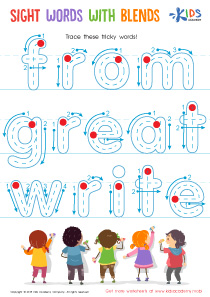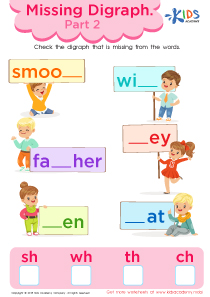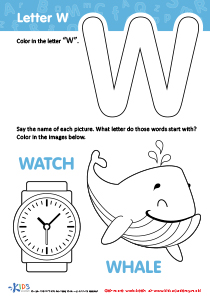Hand-eye Coordination Normal Grade 1 Alphabet Worksheets
9 filtered results
-
From - To
Enhance your child's development with our Hand-eye Coordination Normal Grade 1 Alphabet Worksheets! These carefully designed worksheets combine foundational alphabet learning with essential motor skills practice. Each activity encourages students to connect letters, trace forms, and engage in playful exercises that refine their hand-eye coordination. Perfect for young learners, these worksheets seamlessly blend education with fun, promoting effective skill-building in a creative manner. By using our resources, you’ll provide a solid foundation for reading and writing while ensuring your child enjoys the learning process. Explore our collection today and support your first grader’s growth in an engaging way!
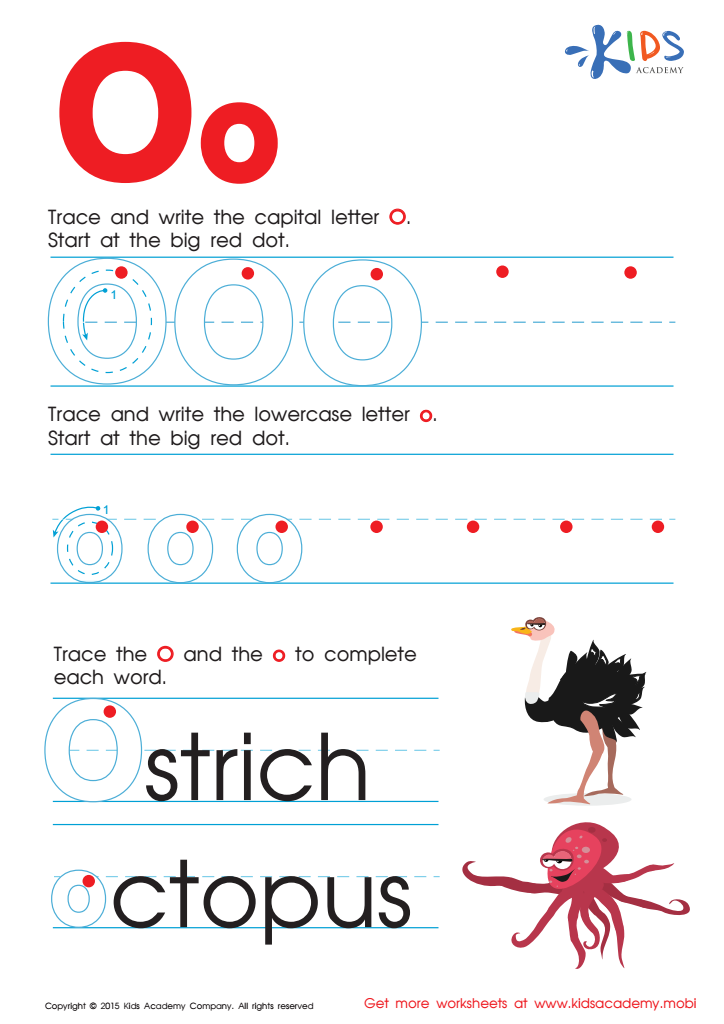

Letter O Tracing Page


Letter P Tracing Page


Letter H Tracing Page


Long Vowel Maze /o/ and /i/ Worksheet
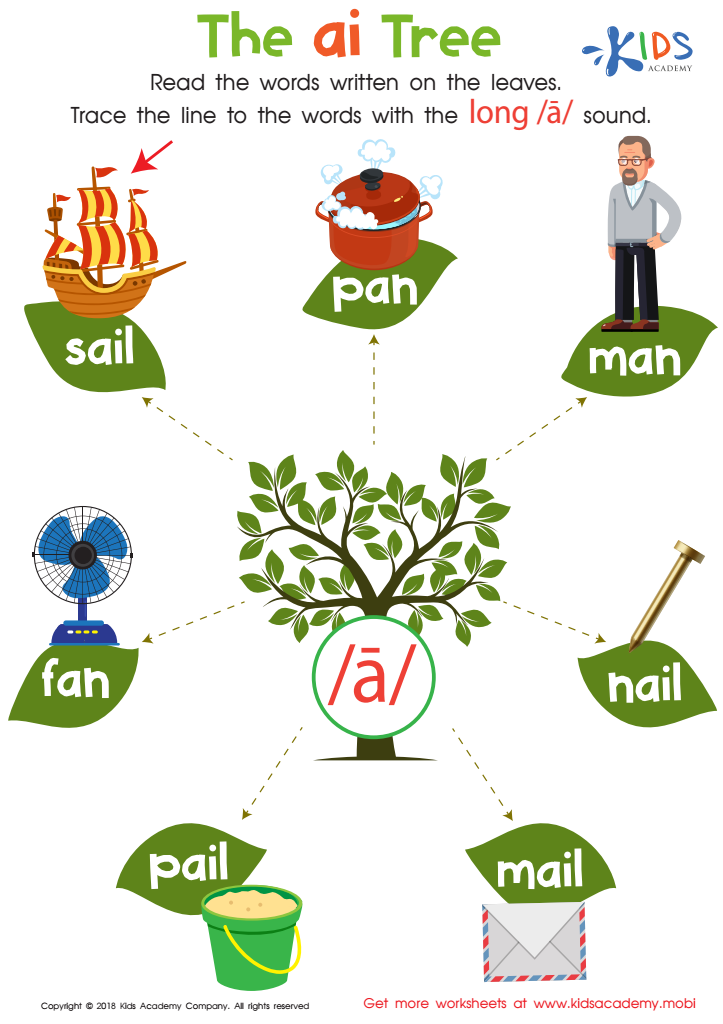

The AI Tree Worksheet


Long and Short U Worksheet
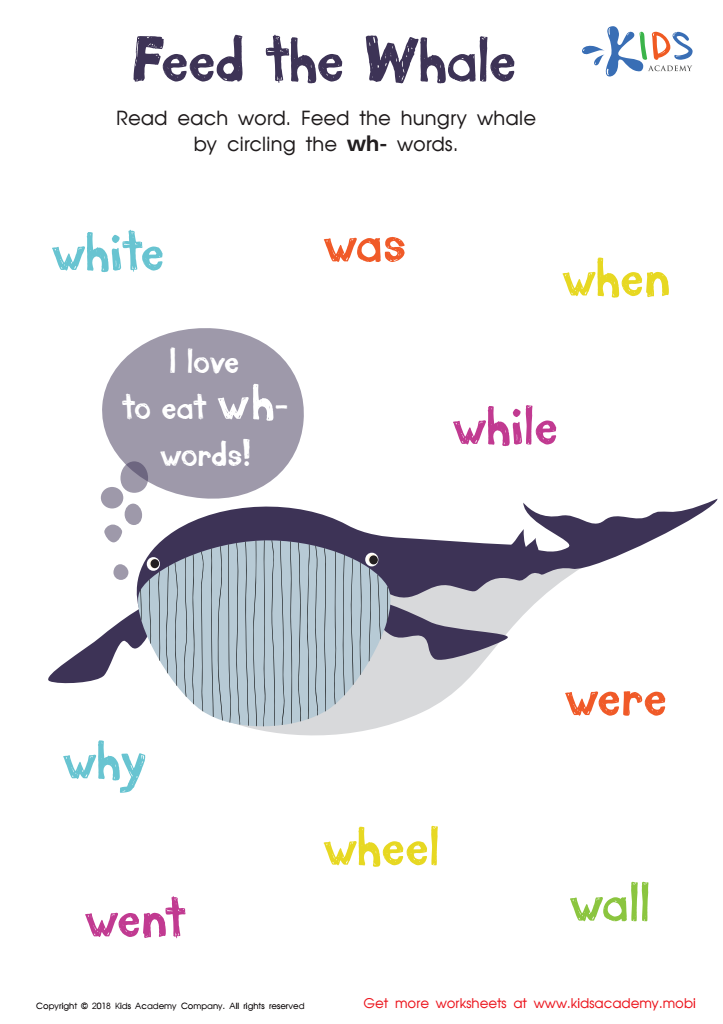

Feed the Whale Worksheet


Long and Short E Worksheet
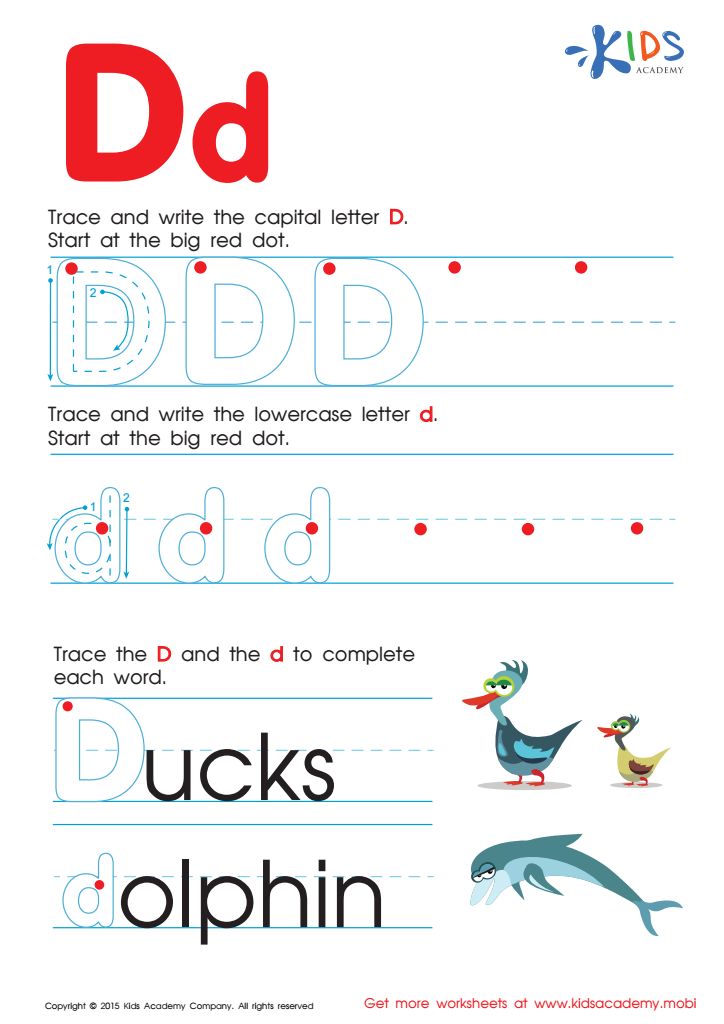

Letter D Tracing Page
Hand-eye coordination is a critical skill that develops in early childhood and has significant implications for a child's overall physical and cognitive growth. For Grade 1 students, mastering hand-eye coordination while learning the alphabet is essential as it sets the foundation for writing, reading, and other fine motor skills. Engaging with activities that enhance hand-eye coordination, such as tracing letters, playing with building blocks, or participating in simple sports, can also improve concentration and focus.
Parents and teachers should recognize that proficient hand-eye coordination supports children's ability to interact effectively with their environment. It helps in everyday tasks, from handwriting to typing, as well as in self-care activities like buttoning clothes or tying shoelaces. Moreover, developing these skills can boost a child’s confidence and independence.
Additionally, challenges in hand-eye coordination might be indicative of underlying learning difficulties. Early identification allows for targeted interventions, helping children catch up and succeed academically. Thus, investing time and resources to nurture hand-eye coordination among young learners is crucial—ultimately fostering academic success while also promoting a healthy, active lifestyle. By encouraging these skills through enjoyable learning experiences, parents and teachers can empower children as they prepare for future educational challenges.
 Assign to My Students
Assign to My Students








